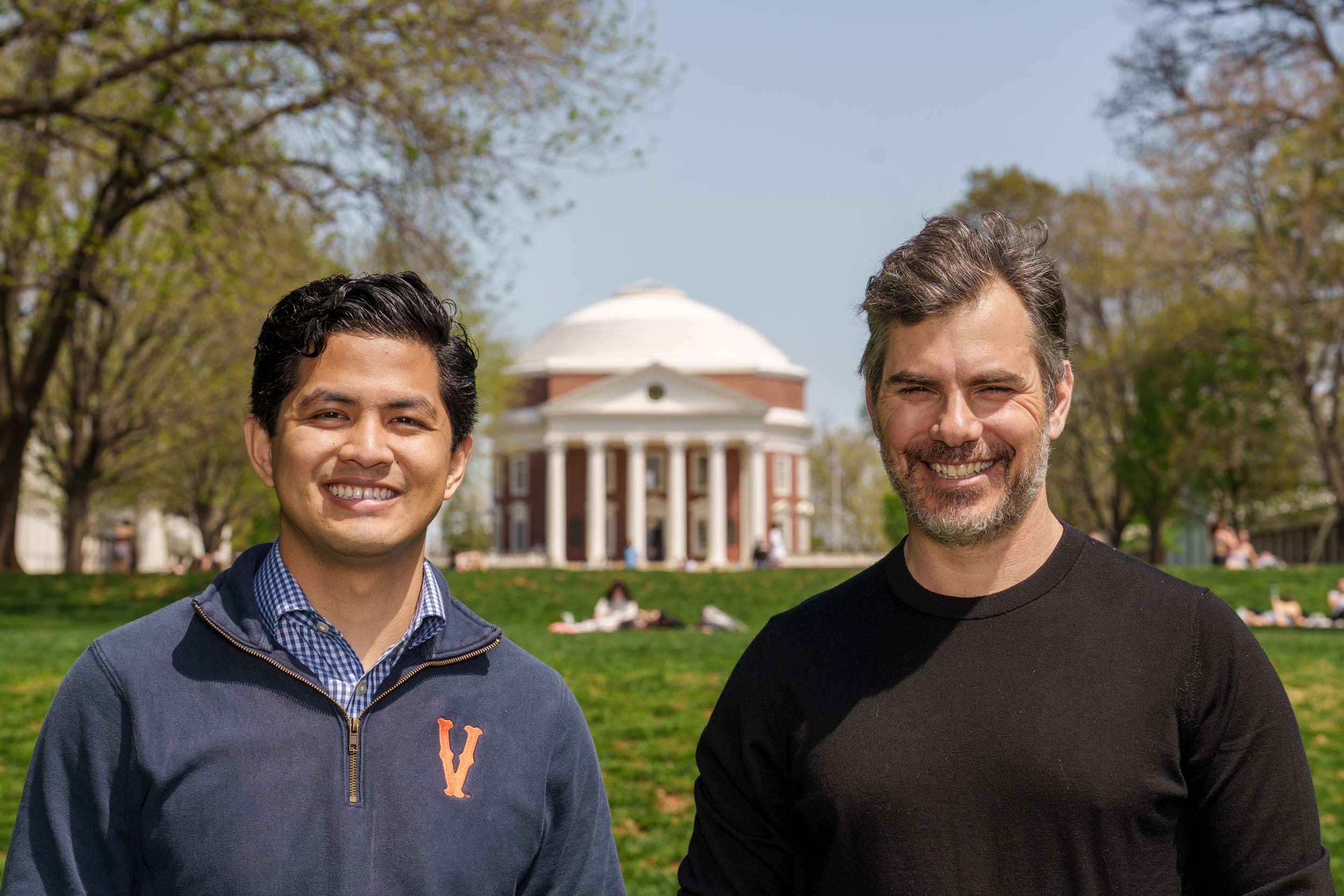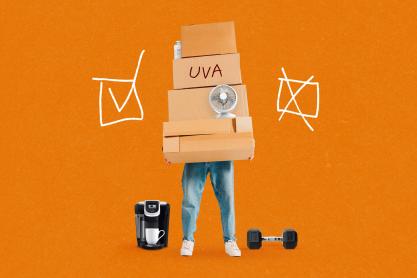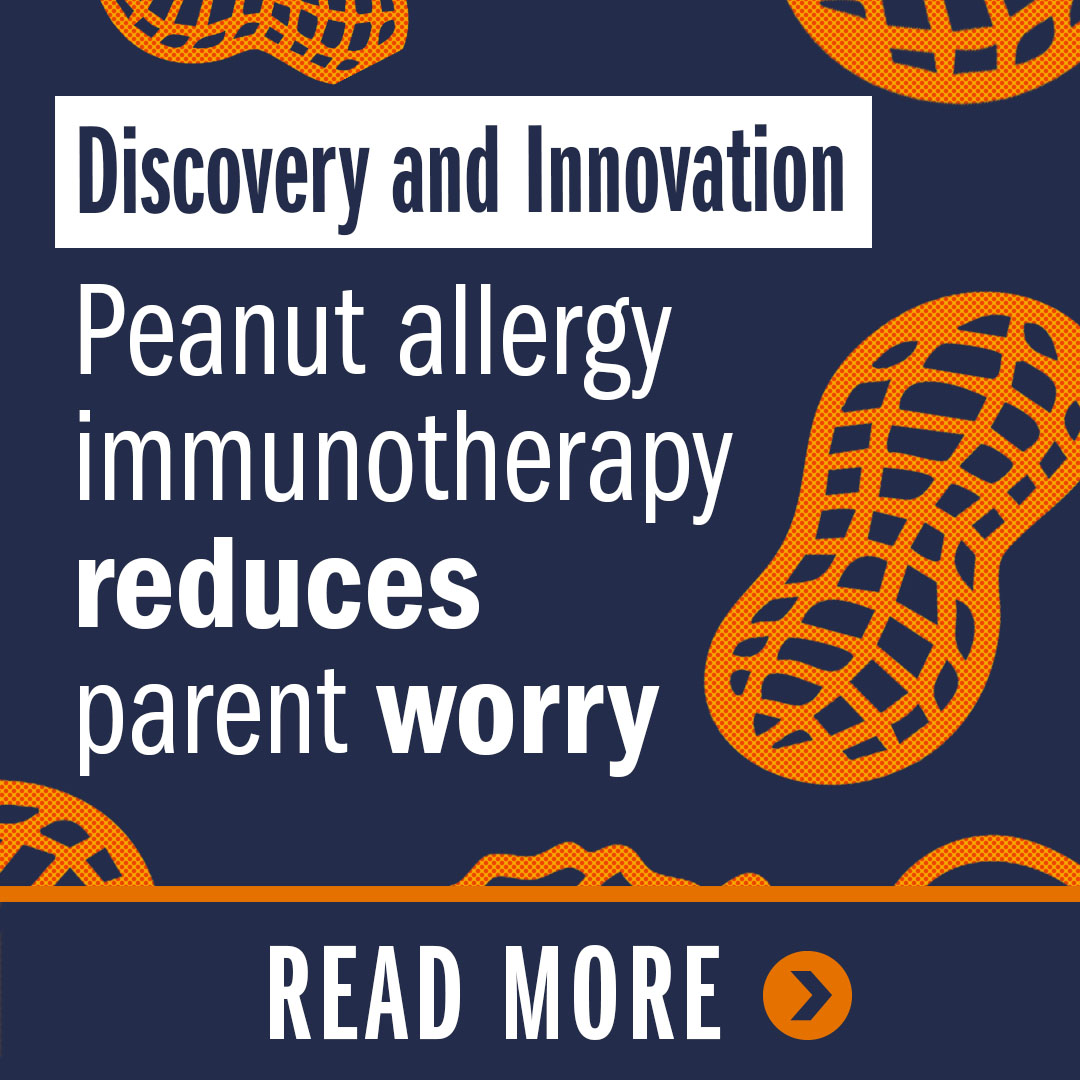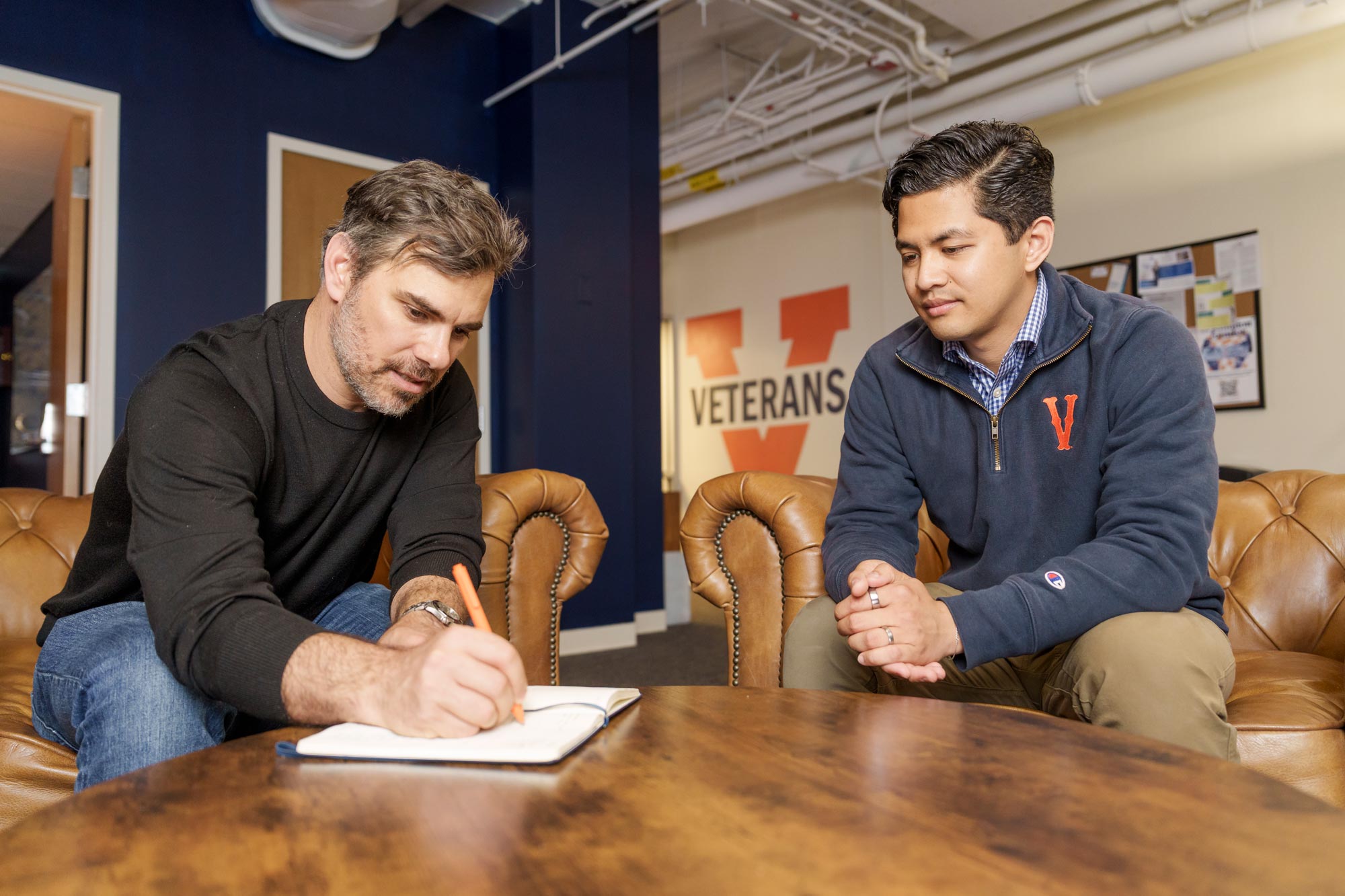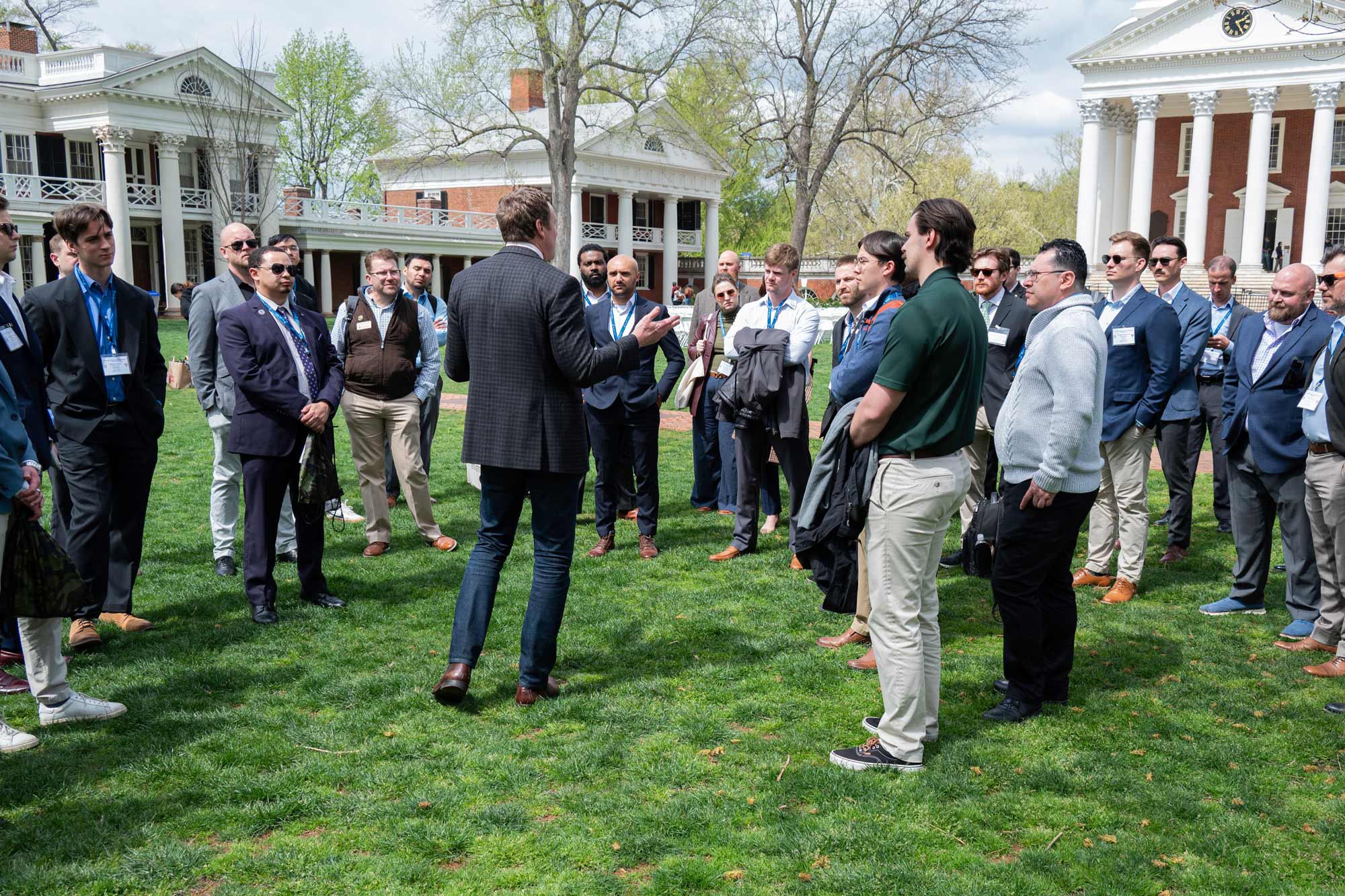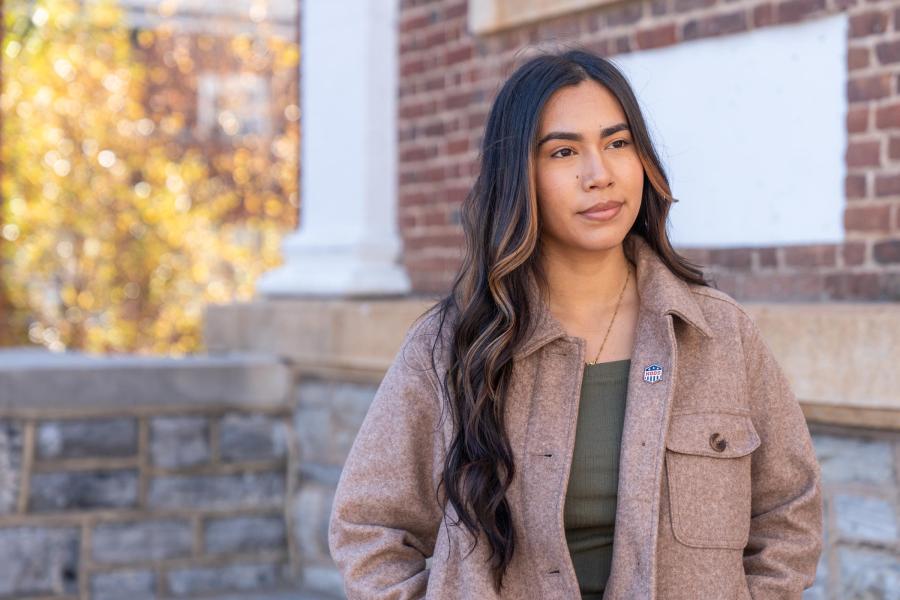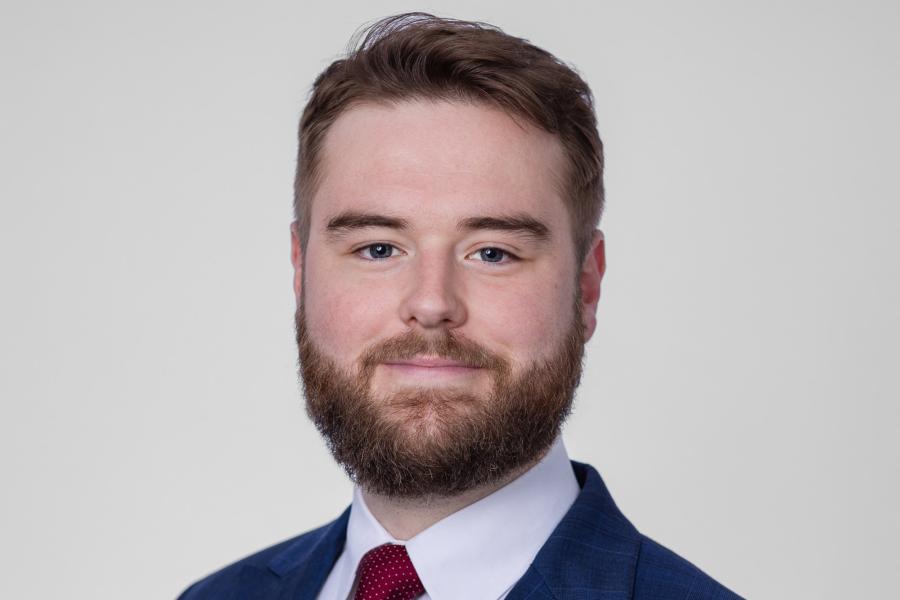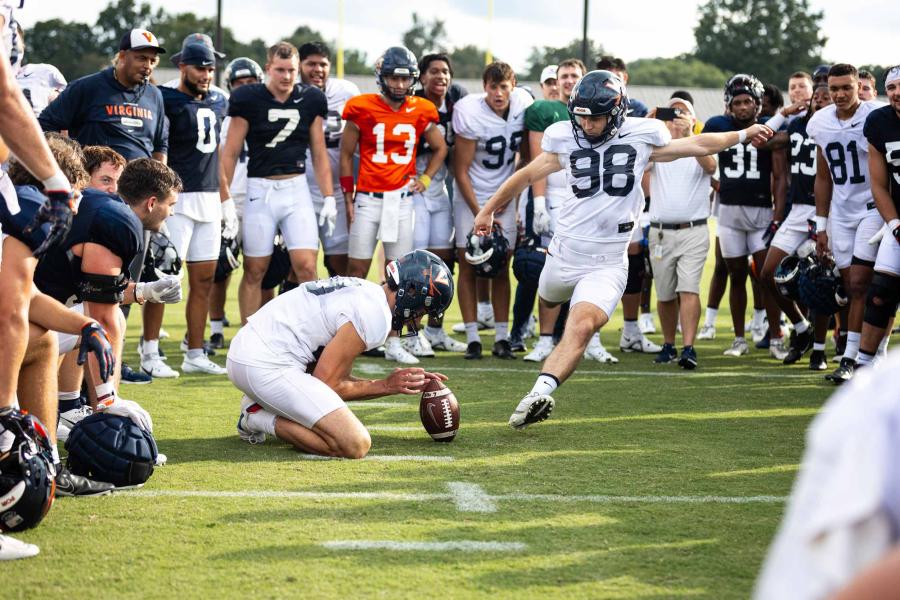When Haley Champion graduated high school, she didn’t think college was for her. At least not immediately.
“I wanted to go on an adventure,” she said. So, she joined the U.S. Navy, became a corpsman and served five years before exiting. But her husband was still stationed at Camp Lejeune, North Carolina, so she enrolled in a nearby community college.
There, she heard about a program to help veterans like her consider loftier academic goals. She asked a college counselor to look at her credentials.
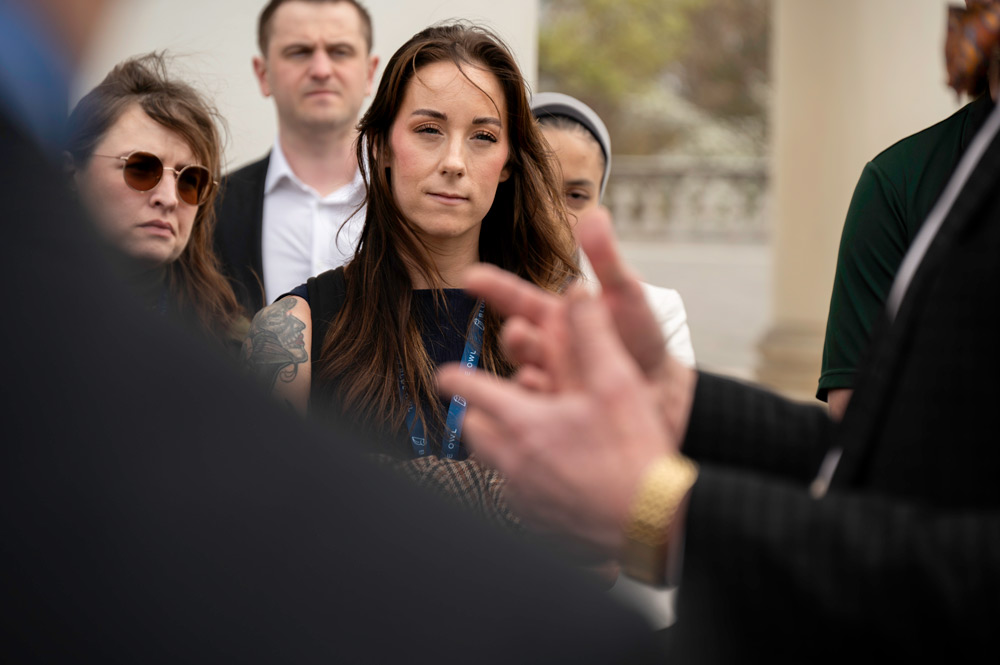
U.S. Navy veteran Haley Champion, now a Princeton University student, listens to Vice Provost for Academic Outreach Louis Nelson describe UVA’s history. Champion worked with UVA student veterans to bring the Ivy League Veterans Council spring conference to Charlottesville. (Photo by Mike Mather, University Communications)
“‘Is this feasible? Be honest with me,’” Champion recalled asking. “He said yes, and I said, ‘That’s all I need. I’ll do the rest.’”
Now, Champion is a neuroscience student at Princeton University. She leads the Ivy League Veterans Council, which supports student veterans at the nation’s most prestigious colleges.
She partnered with UVA student veterans Mike Rose and Romeo Sarmiento to bring the group’s spring conference to UVA last month.
For Rose, a Navy veteran, and Sarmiento, who served in the Marine Corps, landing the conference checked off a goal they set more than a year ago. But that, in turn, was built on their first goal: gaining UVA admittance to the Ivy League Veterans Council.
“I couldn’t help but think about what I can continue to do while I am here, and it was the same feeling that I got when I was coming up on the end of my contract in the Marine Corps,” Sarmiento, who graduates this month, said. “It wasn’t about ‘dropping the pack’ or so they called it. It was about serving until your very last day.”
